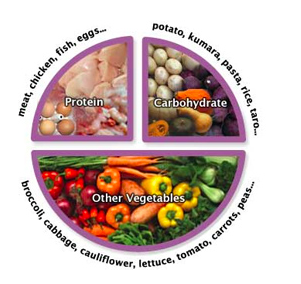Is it just us, or do you cringe with jealousy every time your twenty-something-year-old son scoffs an entire packet of corn chips and doesn’t even think twice? Unfortunately, an increasing waistline is just one of those things that go hand in hand with ageing. And according to experts, hormones play a key role in stacking on the kilos. Not to mention influencing your mood to the point where you feel like a daydream one day, and an absolute witch the next.
Quite simply, during menopause, the little buggers can wreak havoc on your body when you have too little, or too much. So how can you keep your hormones in check? Let’s take a look at some of the biggest offenders that can influence both your weight, and your mood.
- Insulin
More than just a diabetes taboo, insulin can also affect women going through menopause. Also dubbed syndrome X, insulin resistance sees beta cells fail to keep up with your body’s increased need for insulin. This means excess glucose builds up in the bloodstream, which can cause not just weight gain, but also lethargy, irritability and brain fog. If that’s not a recipe for a bad mood, nothing is!
- Estrogen
 When a woman hits menopause her ovaries produce less estrogen, which means the body turns to other sources. Cue fat cells. These produce estrogen, which means the body refocusses its attention on converting calories into fat. Unfortunately, this translates to weight gain in around 90% of menopausal women.
When a woman hits menopause her ovaries produce less estrogen, which means the body turns to other sources. Cue fat cells. These produce estrogen, which means the body refocusses its attention on converting calories into fat. Unfortunately, this translates to weight gain in around 90% of menopausal women.
- Serotonin
Coveted as a mood stabiliser, serotonin is an angelic hormone. Unfortunately, low estrogen levels can trigger a shortage. It’s synthesised from the amino acid tryptophan, which means you can boost your levels by loading your diet with tryptophan-rich foods. Think eggs, cheese, pineapple, tofu, salmon, nuts and turkey.
- Gherelin
Do you still get hunger pangs even after you’ve wolfed down a huge lunch? A Gherelin surplus could be the cause. Known as the hunger hormone, it spirals out of control when your body is starved of sleep.
- Leptin
Also known as the satiety hormone, leptin regulates both energy levels and your appetite. Your body needs sleep to produce it, so when you don’t catch enough z’s you could find yourself gaining weight.
- Adiponectin
Have you noticed that you’re really stacking on the weight around your middle? During menopause, your body cuts down its adiponectin levels. The protein plays a key role in metabolising glucose and fatty acids, which means that a shortage can trigger weight gain. Magnesium fires up adiponectin production, so pack your diet full of nuts, seeds, fish, avocados and dark leafy greens.
- BDNF
Short for brain-derived neurotrophic factor, this hormone is all-important when it comes to mental health. High-fructose diets (we’re talking corn syrup, processed honey and fruit juice concentrate) feed the pathogens in your gut, which allows them to conquer good bacteria and suppress the activity of BDNF. Why is this important? BDNF deficiency is linked to not only mood swings, but also mental illnesses like depression and schizophrenia.
How to keep your hormones in check
Beyond pills, injections and ‘miracle’ creams, there are ways to balance your hormones naturally. Sourced straight from Mother Nature herself, these goddess approved remedies are designed to help you trim down, and cheer up
1. Ditch processed foods
 We’re the first to admit that a strict ‘clean eating’ regime can be tedious. But there are some easy changes you can make to rebalance your hormones. Steer clear of processed foods, and opt for fresher options that don’t mess with your natural hormone levels.
We’re the first to admit that a strict ‘clean eating’ regime can be tedious. But there are some easy changes you can make to rebalance your hormones. Steer clear of processed foods, and opt for fresher options that don’t mess with your natural hormone levels.
2. Cut down on sugar
A sugar overload can spark a cascade of chemical reactions within the body. You don’t need to jump on the ‘I Quit Sugar’ bandwagon but cutting down on your intake can definitely make a difference when it comes to regulating the production of good hormones. Eat foods that are low on the glycemic index, as they release energy slowly. Think veg, legumes, whole grains, nuts and seeds. Pad out your diet with protein-rich snacks in-between meals, don’t skip brekkie, avoid artificial sweeteners and minimise stimulants like caffeine.
3. Yoga and meditation
The act of breathing can have an amazing effect on the body. Simply by inhaling oxygen and exhaling carbon dioxide you help your body release stress-reducing hormones. And no, you don’t have to rock a pair of skin tight yoga tights to get involved.
4. Sweat it out

It’s a no-brainer, but we’ll say it again anyway. Exercise! Endorphins are your body’s natural feel-good meds, released during exercise. They’re positively euphoric, and are a guaranteed way to lift your mood. Not to mention burn a whole lot of calories.
Don’t let hormones become the enemy? With a strategic diet, an active lifestyle and bit of help from your GP, you can breeze through menopause looking and feeling fabulous.









Join the Discussion
Type out your comment here:
You must be logged in to post a comment.